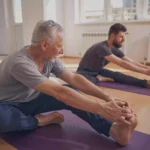
Strength Training for Seniors: Benefits And Beginner Exercises
July 10, 2024
Nutrition for Aging Skin: Best Foods for a Radiant Complexion
July 18, 2024Traveling as a senior can be safe and enjoyable with the right precautions. Focus on planning, health, and comfort.
Seniors can embark on unforgettable adventures by adhering to some practical travel tips. Prioritize health by consulting a doctor before the trip and packing necessary medications. Choose destinations with senior-friendly facilities and accessible attractions. Stay hydrated, wear comfortable clothing, and take regular breaks during travel.
Consider travel insurance for added peace of mind. Opt for guided tours or cruises that cater to older adults, ensuring a relaxed and stress-free experience. Maintain communication with family members and use technology to stay connected. By following these tips, seniors can enjoy enriching travel experiences while staying safe and comfortable.
Preparing For Senior Travel
Visit your doctor before your trip. Make sure to get all necessary vaccinations. Ask the doctor for a list of your medications. Keep this list with you always. Carry extra medication in case of delays. Use a pill organizer for easy access. Drink plenty of water to stay hydrated. Wear comfortable shoes to prevent falls. Take breaks to rest and avoid exhaustion.
Pick a travel insurance plan that covers medical emergencies. Ensure it includes trip cancellations and delays. Read the policy details carefully. Check if pre-existing conditions are covered. Compare different insurance plans for the best deal. Look for plans with 24/7 assistance. Carry a copy of your insurance details. Keep emergency contact numbers handy.
Selecting Senior-friendly Destinations
Choose destinations with good public transportation. Ensure hotels have elevators and accessible rooms. Look for flat terrain to make walking easier. Medical facilities should be nearby. Language barriers can be a concern; pick places where English is commonly spoken. Weather conditions should be comfortable for seniors. Local cuisine should be suitable for senior dietary needs. Crowded places can be tiring; opt for less crowded destinations.
Museums and historical sites offer rich experiences. Parks and gardens provide relaxation. Theater shows and concerts can be enjoyable. Cooking classes are fun and engaging. Art galleries are perfect for leisurely visits. Guided tours ensure a smooth experience. Local festivals give a taste of culture. Boat rides and train journeys are relaxing.
Transportation Considerations
Choose direct flights to reduce travel stress. Consider early boarding for extra time to settle in. Use aisle seats for easier access to the restroom. Train travel can be comfortable and scenic. Opt for first-class or business class on trains for more space. Cruises offer great amenities and accessibility features. Always check for senior discounts on travel tickets.
Arrive at the airport early to avoid rushing. Use wheelchair services if walking long distances is hard. Keep important documents easily accessible. Ask for help if you need assistance. Use airport shuttles to move between terminals. Pre-book transportation to and from the airport. Stay hydrated and take breaks when needed. Look for signage to guide you through the airport or station.
Accommodation Tips For Seniors
Choose hotels with elevators and ramps. Check room amenities like grab bars and walk-in showers. Request lower floors if stairs are an issue. Look for on-site medical assistance. Consider dining options within the hotel. Ensure Wi-Fi availability for staying connected. Verify emergency exits and safety features.
Carry a smartphone with international calling. Use video calls to see loved ones. Share your itinerary with family members. Check-in daily via text or call. Utilize social media for quick updates. Consider travel apps for easy communication. Keep emergency contacts easily accessible.
Packing Essentials For Senior Travelers
Choose lightweight luggage that is easy to carry. This reduces strain on your body. Use organizers to keep items in place. Packing cubes and zipper bags are helpful. They make it easy to find things quickly. A small backpack can also be useful. It keeps important items close to you.
Pack your medications in your carry-on bag. Include a list of your medications and dosages. Bring a first-aid kit for minor injuries. Comfortable shoes are a must. They prevent foot pain during long walks. A travel pillow and a blanket can make flights more comfortable. Don’t forget your glasses or contact lenses. A hat and sunscreen protect you from the sun.
Staying Healthy On The Go
Eating balanced meals is very important. Fresh fruits and vegetables should be included. Drink plenty of water to stay hydrated. Avoid sugary drinks. Healthy snacks like nuts can be carried. Small, frequent meals help in maintaining energy levels. Do not skip meals as it can cause fatigue. Always keep a water bottle handy. Be mindful of local water quality.
Daily walks keep the body active. Stretching exercises prevent stiffness. Simple stretches can be done anywhere. Take breaks to rest during the day. Adequate sleep is crucial for health. Short naps can be refreshing. Avoid overexertion to prevent injuries. Listen to your body and rest when needed. Comfortable shoes are a must for walking. Enjoy your trip without overdoing it.
Safety Measures While Traveling
Always be careful with your belongings. Never trust strangers who offer help. Use official guides and services. Avoid places that look too crowded or isolated. Always keep your wallet and phone in a safe place. Be wary of offers that seem too good. Always use reliable transport options. Check reviews before booking any hotel or tour. Keep emergency contacts ready at all times.
Carry a first aid kit with you. Always have your medications in your bag. Keep a list of emergency contacts. Know where the nearest hospital is. Always have a charged phone. Have a copy of your passport and ID. Make sure someone knows your travel plans. Learn a few local phrases for help. Keep a small amount of cash for emergencies.
Making The Most Of The Journey
Talk to locals and learn their stories. Try local foods and visit markets. These experiences make travel more enjoyable. Join a local class or workshop. Learn a new skill or craft. Walk through neighborhoods and parks. It’s a great way to see daily life. Visit museums and cultural sites. They offer rich history and art. Attend local festivals if there are any. They are full of fun and culture. Senior travelers can enjoy these activities safely.
Take lots of photos to remember your trip. Write in a journal each day. This helps keep memories fresh. Share your stories with family and friends. They will love to hear about your adventures. Use social media to share updates. This keeps everyone informed. Create a scrapbook with photos and notes. It’s a great way to relive your trip. Seniors can use technology to document their travels easily.
Traveling With Mobility Aids
Choosing the right mobility aid is important for senior travelers. A lightweight cane can help with short walks. For longer distances, consider a walker or a rollator. Both offer stability and ease of use. Always make sure the aid fits comfortably. Check if it is easy to pack and carry. Consult a healthcare professional for the best advice. They can recommend the most suitable aid for your needs.
Wheelchairs and scooters can make travel easier. Ensure the device is in good condition before travel. Check airline policies for transporting wheelchairs. Some airlines offer special assistance. Always plan for accessible accommodation. Many hotels have rooms designed for wheelchair users. Research your destination for accessible attractions. This helps in planning a smooth trip. Look for accessible transportation options at your destination. Many cities offer accessible buses and taxis.
Embracing Technology For Senior Travel
Smartphones can be very helpful. Use Google Maps for directions. WhatsApp allows easy messaging with family. TripIt helps organize travel plans. Medisafe reminds you to take medicine. Uber and Lyft provide safe rides. Google Translate helps with language barriers.
Gadgets like portable chargers keep devices powered. Noise-cancelling headphones can make flights more comfortable. Fitness trackers monitor health. Kindles are great for reading. RFID-blocking wallets protect your cards. Travel pillows can help you sleep better on planes.
Use a VPN to protect your data. Avoid public Wi-Fi for sensitive tasks. Use strong passwords for online accounts. Be cautious with emails from unknown sources. Use two-factor authentication for extra security.
Keep your devices updated with the latest software. Backup important data before traveling. Share travel plans only with trusted people. Avoid oversharing on social media. Lock your devices with a PIN or password.
Prioritize safety and enjoy every moment of your travels. Follow these tips for a memorable adventure. Stay prepared and embrace new experiences. Traveling as a senior can be both fun and safe. So, pack your bags and create unforgettable memories.
Happy travels!

